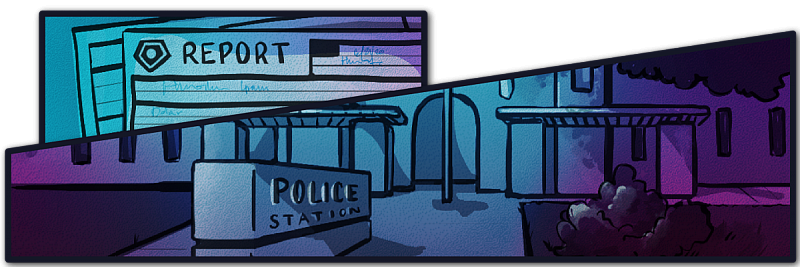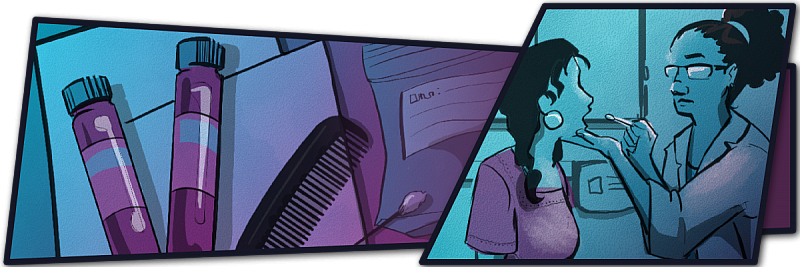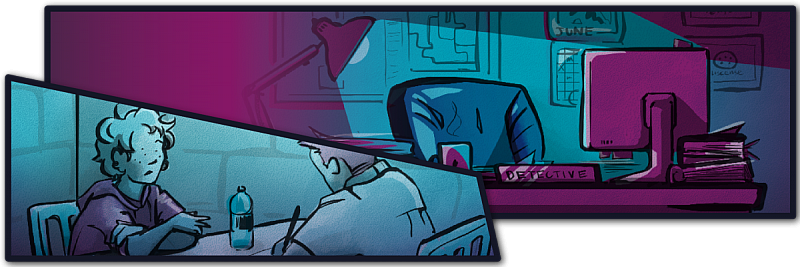A Guide For Reporting Sexual Assault In Sacramento County
This introduction piece is part of a larger project, After The Assault, which aims to change the conversation around sexual violence to better support survivors seeking healing and justice. USC Annenberg Center for Health Journalism’s Impact Fellow, Sammy Caiola, helps us understand survivor experiences in the immediate aftermath of sexual violence and during police investigations.
Other stories in this series include:
Episode 3: A Question Of Evidence
Content Warning
If you are a survivor of sexual assault, reading this may trigger a negative reaction. This guide discusses survivor interactions with law enforcement and medical personnel that may occur in the aftermath of an assault.
Image


Steps To Report A Sexual Assault
In Sacramento County
If you’re a survivor of sexual assault, it’s your choice whether to report to the police or not.
Lots of survivors don’t report, especially survivors of color. There are many reasons for that, such as distrust of law enforcement, fear of additional trauma and safety concerns.
If you’re thinking about reporting, this guide might help you figure out your next steps.
WHAT YOU SHOULD KNOW
It’s OK not to go through law enforcement. And if you decide to start, you can stop at any time.
You don’t have to go through this alone. You have the right to a support person at any point in the process. That can be a loved one or a trained counselor from your local rape crisis center.
If you decide to work with law enforcement, be prepared: it can be a long process, and some survivors find it retraumatizing.
This guide is specific to the Sacramento County law enforcement agencies we worked with. The process might be different in other parts of the state or U.S.
This is the process for survivors over the age of 14. There are other guidelines for children.

Make A Phone Call
If a sexual assault is in progress or you are in danger, call 9-1-1. If the assault is over and you are in a safe place, call the non-emergency line.
If you decide to report an assault, whether immediately after it happens or weeks or months later, you start by making a phone call — either to your local rape crisis center or to the police. WEAVE is the local rape crisis center in Sacramento County.
If you’re confused about which route to take, know that each ends in the same place. If you call WEAVE, they can help connect you to the police. If you call the police, they should help connect you to WEAVE. You have the right to a WEAVE advocate, and you can ask for one at any point.
WHAT TO EXPECT
If You Call WEAVE
WEAVE staff are trained to help people experiencing trauma from sexual assault. They’ll lay out your options around reporting or not reporting the crime.
A WEAVE advocate can accompany you when you give your report, when you get a medical exam and during other parts of the investigation.
WEAVE can also help you find emergency shelter, connect you to counseling and meet other needs you may have during the reporting process.
If You Call Law Enforcement
Law enforcement will likely ask you where you want to give your report. This can be at your home, at a police station or at another location.
Depending on officer workload, there may be a wait time between when you call and when someone is available to take the report.
You have the right to ask for a WEAVE advocate and a friend or family member to accompany you during any stage of the law enforcement process. Police officers should explain the benefits of having a WEAVE advocate and offer to contact an advocate for support.

Make A Report
If you’d like to tell law enforcement what happened so that they can potentially arrest the perpetrator, you’ll start by making a report.
Providing an officer with the details of the assault will help them determine how to investigate your case. Not all cases get assigned to a detective, but your report could end up being helpful to law enforcement in the future if someone else reports the same perpetrator. Reporting can be retraumatizing. Exercising your right to a support person can help lessen the impact.
WHAT TO EXPECT
Usually, a patrol officer or sheriff’s deputy will take your report. These officers receive some training on sexual assault in the police academy but are not specialized in these crimes.
Giving a police report typically takes between 30 minutes and two hours, but that varies
You might be taken to a ‘soft interview room’ instead of a standard interrogation room
It’s OK if you don’t remember all the details the officer might ask you for. Memory issues are a common symptom of Rape Trauma Syndrome.
Some of the questions law enforcement asks might make you feel uncomfortable or judged. A WEAVE advocate can help you understand why these questions are being asked and provide additional support.
After giving your report, you should get a resource packet. It takes about a month for a case to be assigned to a detective. If you don’t hear back, ask a WEAVE advocate to help you get an update on your case.

Get A Forensic Exam
Medical exams can be used to collect DNA evidence if the assault occurred five or fewer days ago. Nurse examiners may want to collect samples from your mouth, skin, hair and genital areas. Those samples then go into a rape kit for processing. Many survivors describe it as invasive or uncomfortable. You can have a support person with you, and you can say no to any part of the exam.
In California, a victim has a right to a free medical exam whether they report to law enforcement or not.
There are two types of exams: an evidentiary exam and a VAWA exam.
WHAT TO EXPECT
You’ll be taken to a specific clinic for your exam. It must be done by a specially trained team. Not every county has a team, so you may need to travel elsewhere to get an exam.
A forensic nurse examiner will ask you about your medical history and about the assault. They may have to ask detailed questions so they know how to collect good DNA samples.
In addition to swabbing, examiners will take photographs and look for injuries.
You may also be offered emergency contraception or medication to prevent STDs
By California law, the rape kit that’s assembled after an exam must go to the county crime lab within 30 days and then be processed within 120 days. In Sacramento County, the crime lab had an average turnaround time of 59 days in 2019.

Participate In The Investigation
Law enforcement representatives say it’s not uncommon for investigations to take more than a year in total, and there may be periods of silence when you don’t hear anything. If you want to know the status of your case during that time, you can call your detective or call a WEAVE advocate, who can act as a liaison between you and law enforcement.
WHAT TO EXPECT
During an investigation, a detective might:
- Collect witness statements
- Conduct a follow-up interview with the victim
- Collect potential evidence, such as video surveillance or clothing items, from the scene
- Write search warrants to collect further evidence, including social media warrants
- Follow up with the crime lab on any forensic reports
- Interview the suspect
- Consult the district attorney’s office

Next Steps
Law enforcement investigations can be time-consuming and emotionally taxing. If you choose to participate in an investigation, your case may not meet the threshold of evidence to be passed on to prosecutors. But your report could still be helpful to investigators in future cases.
If your case doesn’t move forward, you may want to contact WEAVE or another sexual violence organization to ask for help coming to terms with that. You can also file a complaint with law enforcement if you feel your case was handled improperly.
WHAT TO EXPECT
After detectives have finished investigating a case, they can classify it a few different ways. You can find definitions for case outcomes in the “Investigations” section of our glossary of terms.
When cases are handed to the district attorney’s office, prosecutors make a decision about whether or not to file charges on the case, based on how much evidence they have and whether they can prove in court that the crime occurred.
You may have meetings with prosecutors, and the prosecutor will follow up on whether and how the case moves forward.
If you felt mistreated or disrespected by law enforcement during the reporting and investigative process, you can file a formal complaint.
- Sacramento Police Department’s Internal Affairs Division
- Sacramento County Sheriff’s Office Internal Affairs
- Citrus Heights Police Department complaint form
- Elk Grove Police Department Internal Affairs
If you spent money on medical care, therapy, relocation and other crime-related expenses, you may be eligible for reimbursement through the California Victim Compensation Board. Learn how to apply.
[This piece was originally published by CapRadio.]
Did you like this story? Your support means a lot! Your tax-deductible donation will advance our mission of supporting journalism as a catalyst for change.

